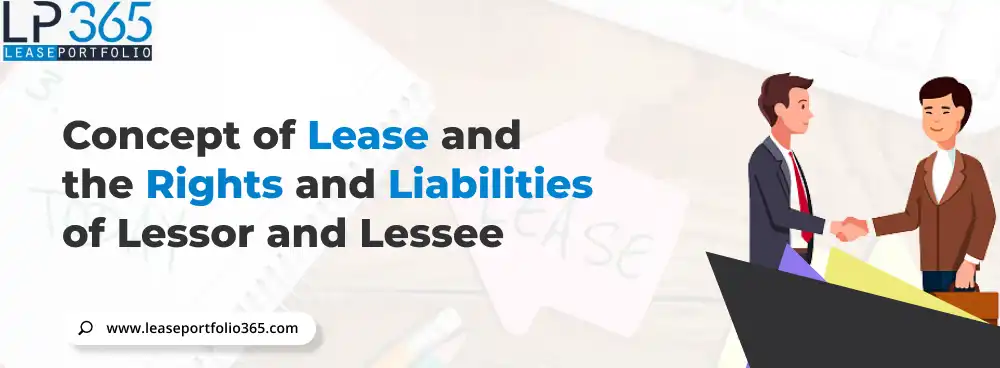Book a Free Demo

Apr 06, 2022

Lease is a very normal term that is used in dealing with land or property. So if a person is interested in renting out his flat or his property then that person will opt for leasing it out for the betterment. Unfortunately, people miss out on trivial aspects of a lease deed and it causes a ruckus. It would be wise for a tenant and a landlord to be wary of their rights and liabilities so that they can avoid and manage any obstacles.
1. Competency of Lessor and Lessee- For a lease to be valid both the lessor and the lessee must be competent enough to declare a contract agreement subsequently.
For a lessor and lessee to be competitive they must be:
● The lessee must be a major in the
society
● The lessor must hold the title and authority to make the lease without
any plagiarism
2. Subject matter- The subject matter of the lease must be immovable property or sites like a flat, house. It can’t be any kind of resourceful-hearted or movable parts.
There are certain differences between an agreement to lease and a lease agreement but both of these terms are often confusing for people and they may be able to make mistakes in these cases frequently.
So, initially, an agreement to lease is the initial part of a lease agreement. An agreement to lease does not create any legal obligation, an agreement to lease just implies the possibility of any future transfer and many more. An agreement to lease just denotes the terms and conditions of a prospective lease agreement and other conditions may be applicable in this term.
On other hand, a lease deed or a lease agreement is a final contract that can’t be changed at their convenience. A lease deed along with the delivery of possession creates a legal obligation upon a person and it’s possible to make any other future plans.
A lease deed transfers the rights from a lessor to a lessee for a specific duration mentioned in the agreement.
1. Right to accretions- If during the tenancy period, any further accretion, accumulation, or addition is made to the property then the lessor is entitled to such property or sites which are unable to make their future decisions without involving others.
2. Right to collect rent- The lessor has the right to collect the rent amount or any form of consideration as mentioned in the terms and conditions of the contract from the tenant without any form of interruptions and deviation.
1. Duty of disclosure- The lessor is bound to disclose any form of a material defect in the property they may not have any right to hide
There are two kinds of defects:
● Latent defect- Latent defects cannot
be discovered rationally or through inspection by the lessor but they
may be discovered by other activities.
● Apparent defect- Apparent defect can be easily discovered through some
inspection but not in all ways.
To give possession- The lessor must give possession of the property to the lessee at the lessee’s request without any delay. However, this liability only arises when there is a request on behalf of the lessor but not continuously.
1. To charge for repair- If the lessor fails to make any kind of repairs in the property which the lessor is bound to do the same in that case the lessee can make such repairs by his personal expenses without any expectations from the owner. If a lessee makes such repairs by his personal expenses then, in that case, it is the right of the lessee to take the cost of such repairs from the rent or the lessee may simply charge the lessor for such repairs or as per their lease agreement.
2. Right to remove fixtures- The lessee has the right to remove any fixture in the property or sites during the time period of the lease, however, after the end of the lease deed the lessee must leave the property in the condition in which they received it without any deviation on the property or sites.
1. Duty to disclose material facts- The lessee is asked to inform the lessor of any material fact that the lessee is aware of and the lessor is not but they can. In case the lessee does not disclose such a fact and the lessor suffers any loss then the lessee is bound to compensate the lessor as well as they need to resolve the problem with their own expenses without any intervention from the lessor.
2. Duty to pay rent- The lessee is used to pay the rent or the premium to the lessor in the proper time and proper place as decided by the lease deed without any further delay.
We analyzed the concept of a lease and how a lease is different from a licence or any other form. We discussed the rights and liabilities of the lessor as well as the lessee who are integral and indispensable parts of a lease deed.
Subscribe and follow https://leaseportfolio365.com for a free demo and have a better idea and reach towards apartments.